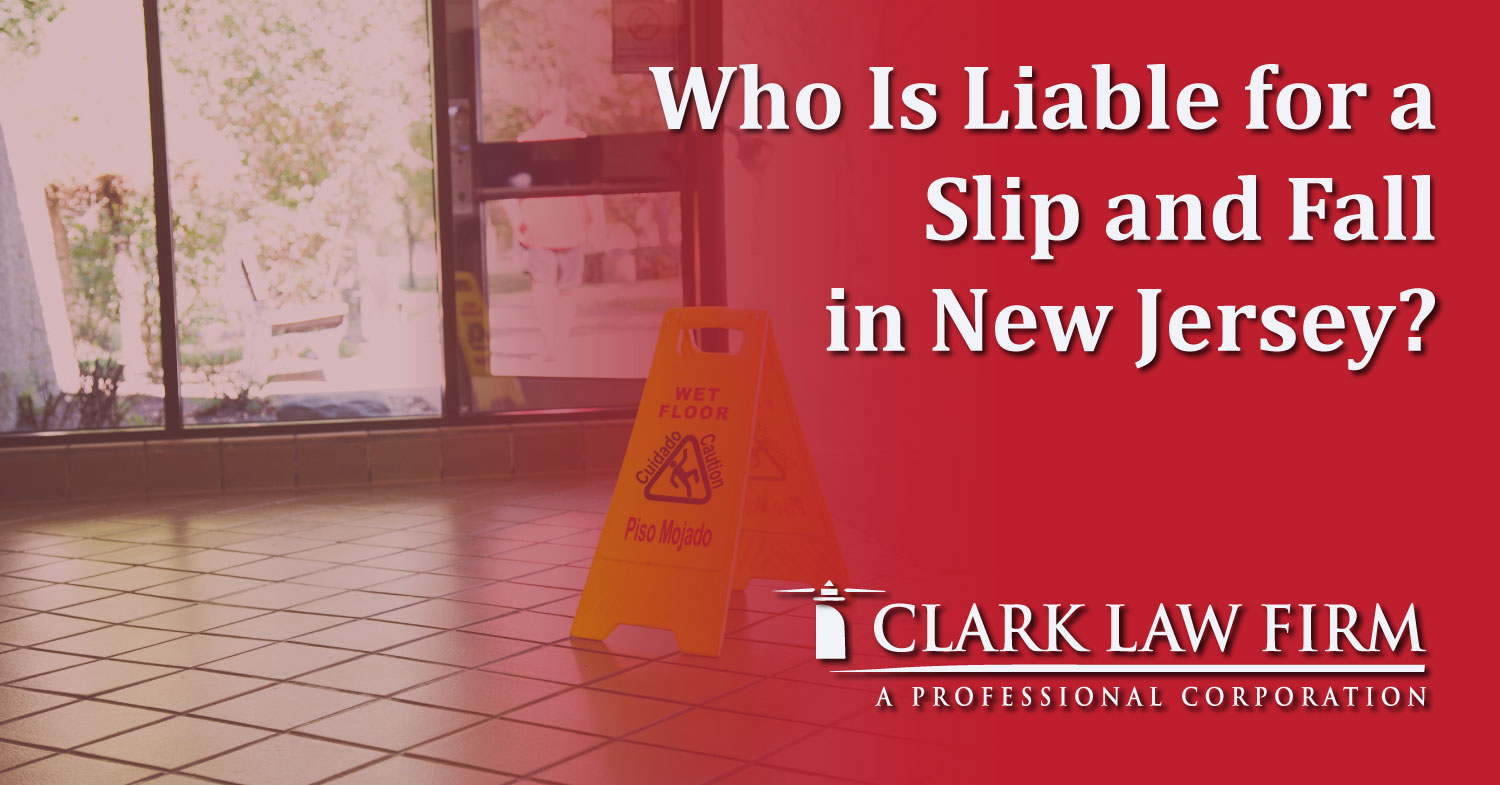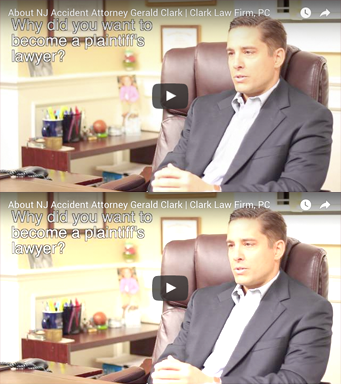Who Is Liable for a Slip and Fall in New Jersey?
Whether it’s a faulty handrailing, unaddressed spill, dangerous obstruction, or other uncleared hazard, a negligent property owner can cause a world of hurt. Victims of slip and fall accidents often suffer catastrophic injuries, leaving them in considerable pain, out of work, and struggling under a mountain of medical debt.
Fortunately, many of the losses stemming from a slip and fall accident may be recoverable. New Jersey’s laws allow personal injury victims to file a claim against the liable parties to seek compensation for their injuries and other damages. As such, you may be wondering who is liable for your slip and fall. In this article, we will take a closer look at New Jersey’s premises liability laws and the types of evidence that could help you prove negligence in your case.

New Jersey’s Premises Liability Laws
If you slipped and fell on someone else’s property, the owner may be liable for your injuries and other damages. However, in order for you to obtain a financial award, you will need to show that the owner was negligent, and that their negligence led to the accident.
Typically, a property owner is considered negligent if he or she created a hazardous condition, knew of a hazard on their property but failed to clear it, or should have been aware of a dangerous condition. Hazards can range from wet floors and ice-covered walkways to defective handrails and exposed wiring.
However, even if it seems clear to you that the property owner was negligent, it’s likely that he or she will argue that you played some role in causing the accident. As New Jersey employs the comparative negligence rule for handling personal injury lawsuits, your financial award may be reduced by your percentage share of liability if the property owner can show that you were partially at fault. For instance, the owner may claim that the dangerous condition was cordoned off, that you weren’t paying attention to your surroundings, or that you were not wearing appropriate footwear under the circumstances.
To counter such defenses, you will need to gather evidence to demonstrate liability, such as:
- Photographs of the hazardous condition;
- Surveillance camera footage;
- Eyewitness testimony;
- Maintenance records;
- A written account of the accident;
- The police accident report; and
- Your medical records.
Keep in mind that much of the evidence in a premises liability claim might be time sensitive. For example, surveillance camera footage is routinely erased, hazards are cleared or repaired, and maintenance records might be altered or lost. As such, if you are physically able to do so, you should take steps to begin gathering proof immediately after the accident, such as taking pictures of the accident scene and writing down the names and contact details of any eyewitnesses.
Discuss Your Case with a Premises Liability Attorney in New Jersey
If you slipped, tripped, or fell due to a hazardous condition on someone else’s property, it might be in your best interests to speak to a premises liability attorney. At the Clark Law Firm, we can help you gather the necessary evidence to prove liability and damages, and provide tenacious representation throughout proceedings. Contact us today at 877-841-8855 or head over to our Contact Page to request a free case review.

